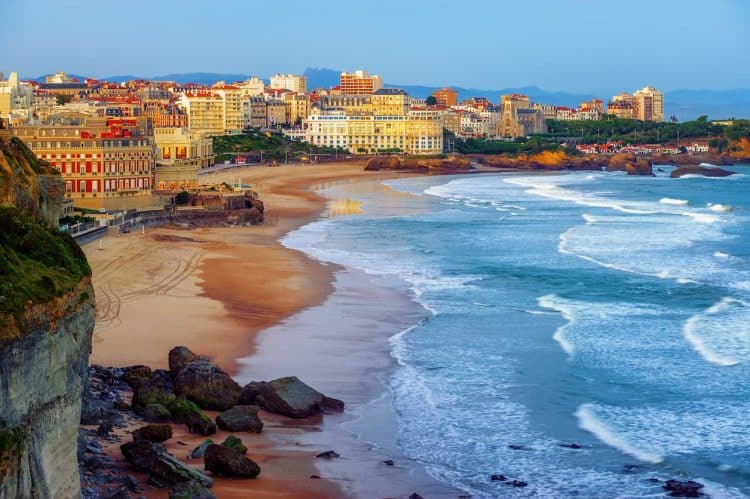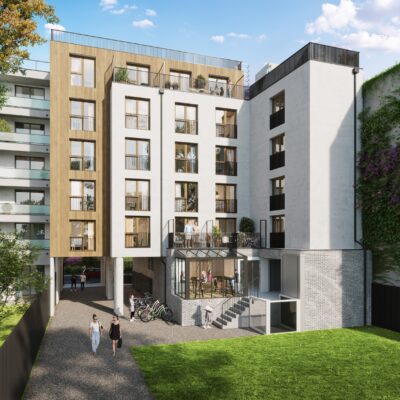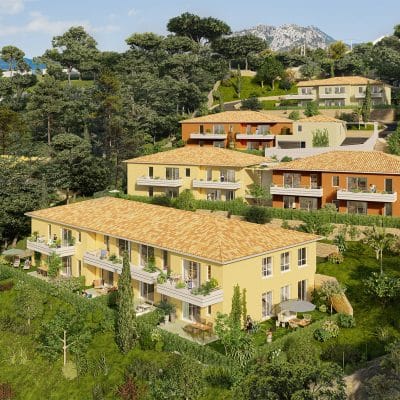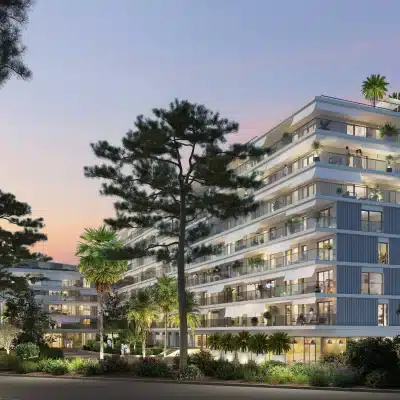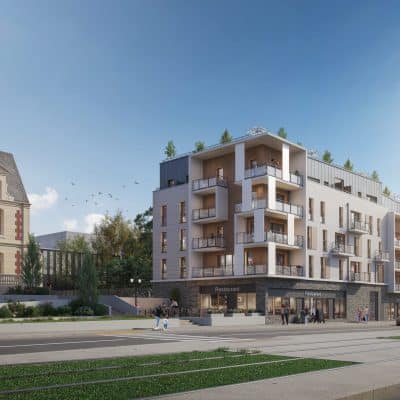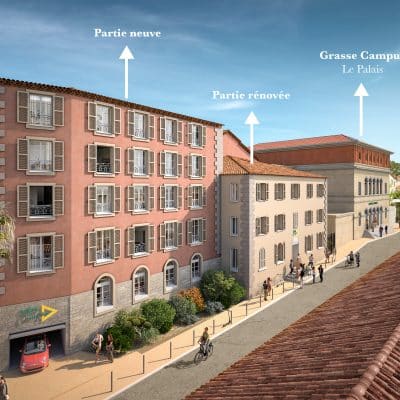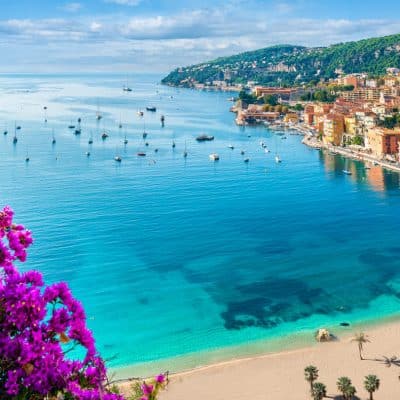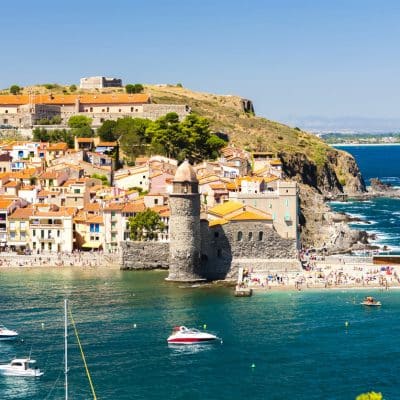France in figures
- Continent: Europe
- Population: 67,813,396 inhabitants (2022)
- Population growth: 0.28% / year
- Area: 551,695 km²
- Density: 118.96 inhabitants / km²
- GDP growth: 7.00% / year (2021)
- Official language: French
- Currency: Euro (€ EUR)
- Type of State: Parliamentary Republic
- Tourists: 84,500,000 people/year (2022)
A great country in a small territory
France is a country in Western Europe which shares borders with Belgium and Luxembourg to the north, Germany, Switzerland, Italy and Monaco to the east, and Spain and Andorra to the south, and because of the Channel Tunnel, it also shares a border with the United Kingdom.
Its population is 67.8 million (2022). 65.25 million people live in metropolitan France, the rest being distributed in the overseas departments and regions.
For three decades, it has been the western and southern regions of the country that have seen their population grow much faster than the north and east, which are in relative decline, with the notable exception of Paris and its urban area which concentrates just over 13 million inhabitants (2018).
The largest country in Western Europe in terms of area, France is the crossroads of Western Europe in Europe.
Co-founder of the European Union, France became European by force of circumstance. A modern country that is one of the largest economic powers in the world, a country where life is good, where people go quickly (TGV and Airbus), with the contradiction between the fast-paced modern lifestyle and world-famous culinary traditions and savoir vivre not being shocking!
Our selection in this country
A leading tourist destination

France had the largest number of overseas in the world, welcoming around 91 million tourists in 2019 which is estimated to have recovered to 84.5 million in 2022 following COVID.
Its climate has a lot to do with it. In a small space, it concentrates the temperate oceanic climate, the hot and dry Mediterranean climate, the hot continental climate in summer and cold in winter, and the mountainous climate.
Huge sandy beaches, numerous and very touristy coasts, the most skied mountains in the world, often bucolic countryside, many historic cities, large forests (which increase their area each year) despite an increasing urbanisation of the regions, France offers a wide variety of different settings and landscapes.
Real estate investment areas
New Aquitaine
- infrastructure: international airports (Bordeaux/Biarritz), TGV lines (Paris)
- tourism, gastronomy, culture, well-being
- diversity of the region (ocean, mountains, countryside)
The Riviera
- climate, sunshine, well-being
- infrastructure: 2 international airports (Marseille/Nice), train stations (Marseille/Cannes/Nice/Menton)
- 12 million tourists and 70 million overnight stays/year
Brittany
- strong residential migration with working people and seniors
- rich and diverse coastline
- culture, gastronomy
- very dynamic region, attractive to tourists
Paris and the Paris region
- infrastructure: 2 international airports, 4 SNCF stations, 16 metro lines
- culture, tourism and sport (Paris 2024 Olympics)
- crossroads between Northern and Southern Europe
- 11 million inhabitants in the Paris region
The 2023 tax changes in France
The French government introduced a number of changes for property owners renting their property, with a doubling of allowances which can be offset against their rental income. MHA works with tax specialists that can advise MHA’s clients about their impact.
The steps to follow when buying a property in France
Step 1. Property Search
Once the buyer has identified where he wants to invest, MHA will be able to provide an indicative price for the property based on previous property transactions completed in the area.
MHA will present the client with details of those properties that are available on the market that meet the client’s criteria and arrange a site visit.
If theClient wishes to make an offer for the property, then MHA will obtain from the Vendor or its agent, the following information on the property:
- Details relating to the size of the house and the property
- Details of all existing or previous planning approvals
- Details of all utilities at the property
- a certificate from the local Mairie with details of any natural risks (i.e. avalanche or flooding)
- An energy report on the property
- Details of any defects such as asbestos / lead /any timber-decaying fungus
- if applicable, a gas certificate / report on a cesspit
- If the property is less than ten years old, a builders ten year guarantee
If the property is new, then this information should be capable of being provided very quickly, and if it part of a development, then further information will be required.
Once all the above information has been evaluated, MHA will assist in the preparation of an offer to the vendor.
Step 2. Sign a Preliminary Contract
Once the main terms of the purchase have been agreed, a lawyer or the notary should prepare a Preliminary Contract clearly expressing the terms and conditions of the sale.
While the support of a lawyer or notary is not mandatory at this stage, the Preliminary Contract will specify all the terms and conditions of the purchase, including any conditions that the Buyer should include, such for example as where he wishes to borrow money from a bank and the sale is conditional on this finance being available, the buyer should be able to withdraw if such funding is not available. Alternatively, the Buyer’s offer may be made subject to receiving planning permission for an extension or other works on the property, and if such planning were turned down, then this would enable the buyer to terminate the contract without any penalty.
If a notary is involved in the preparation of this contract, then it is likely to be as lengthy as the final deed itself, since the notary usually requires all information that would be required for a completion to be provided prior to the signing of the Preliminary Contract.
The Preliminary Contract may need to be registered with the tax office within 10 days of its signature, and the approval of the local Town Hall would also be likely to have a pre-emption right over the property. During this period the buyer also has the benefit of a 10-day “cooling off” period, allowing the buyer to withdraw from the purchase without any penalty.
Step 3. Obtaining a bank loan
Following the signing of the Preliminary Contract, if the buyer needs to raise money from a third party, then he would usually have two months to obtain a finance offer. During this time, it is likely that an expert from the bank would need to visit the property to make an appraisal of its value.
For foreign investors, this process would be likely to be a lengthy one in the current market, and investors should also consider looking at an Equity Release on their principal or an alternative property, or a tax free release from a Pension Pot for certain UK investors.
Step 4. Sign the Deed of Sale
The Deed of Sale is prepared by the notary. In many cases the notary will act for both the buyer and the seller, but the buyer can request that another notary represents him. This will have no impact on the fees paid at the closing.
Once the Deed of Sale has been signed, the keys are handed over to the buyer against payment of the purchase price and the notary fees.
The notary will give the Buyer a certificate of ownership enabling him to contact the local utility companies.
Following completion, the notary registers the Deed of Sale with the land registry. The notary receives in return a copy of the Deed of Sale stamped by the tax authorities. This document constitutes the title deed and is kept by the notary.

